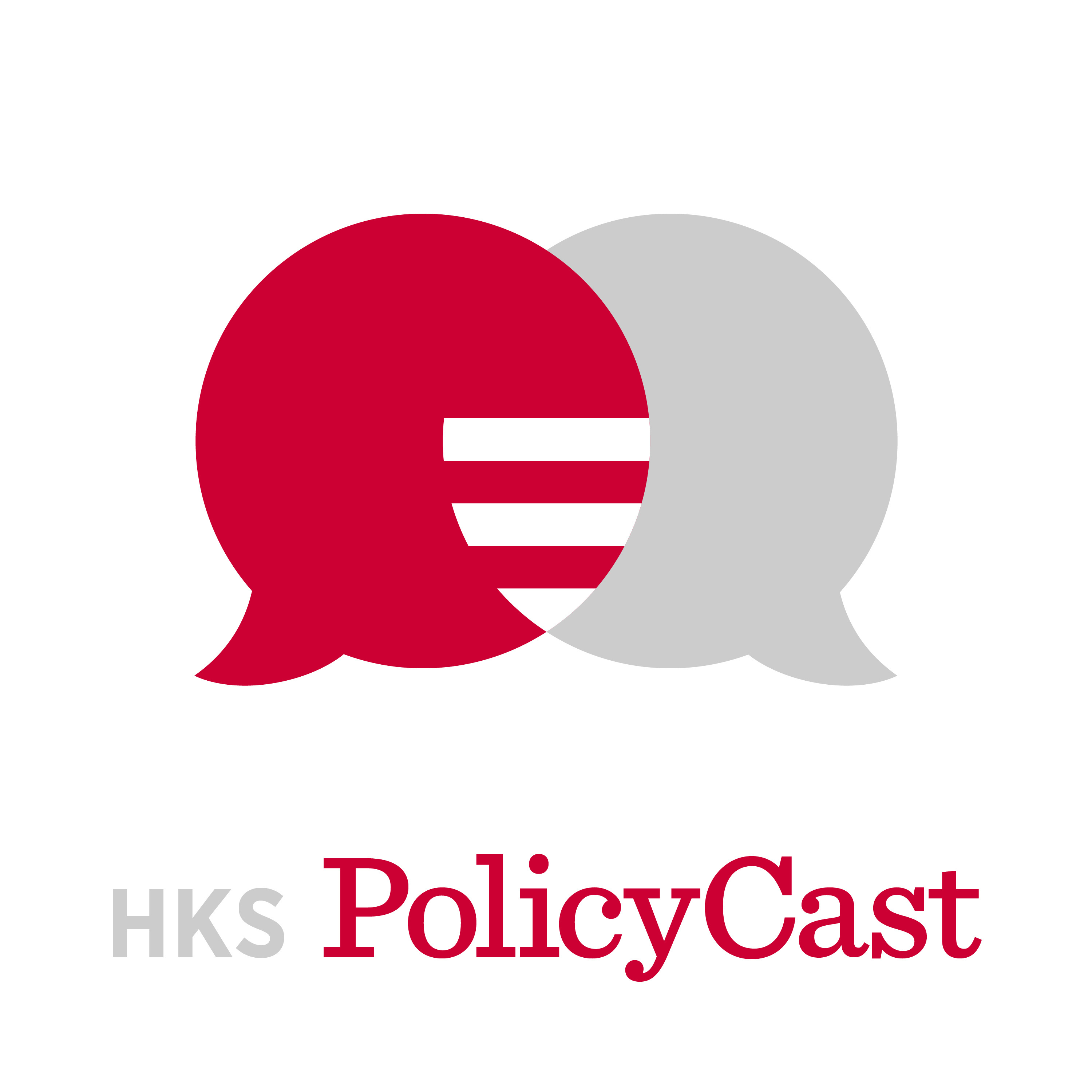

PolicyCast
Harvard Kennedy School
PolicyCast explores research-based policy solutions to the big problems and issues we're facing in our society and our world. Host Ralph Ranalli talks with leading Harvard University academics and researchers, visiting scholars, dignitaries, and world leaders. PolicyCast is produced at the Kennedy School of Government at Harvard University.
Episodes
Mentioned books

Mar 30, 2016 • 28min
Sustainability or Prosperity? Why Not Both?
HKS Professor Bill Clark describes the rapidly growing field of sustainability science, which combines a variety of disciplines in both the hard and social sciences to find paths towards a sustainable future.

Mar 23, 2016 • 32min
How “Pay for Success” Allows Governments to Experiment Without Risk
HKS Professor Jeffrey Liebman, Director of the Kennedy School’s Government Performance Lab, explains how Pay For Success, also known as Social Impact Bonds, allow governments to test out new social programs without risking taxpayer funds if they fail.

Mar 16, 2016 • 30min
Balancing Cyber Security
Michael Sulmeyer, Director of the Belfer Center’s Cyber Security Project, discusses the US government’s efforts to defend against cyber threats in the context of the legal battle between the FBI and Apple over its encryption methods.

Mar 9, 2016 • 29min
A Primer on the Trans-Pacific Partnership
HKS Professor Robert Lawrence explains what the Trans-Pacific Partnership is, how it could transform the global economy, what makes it controversial, and why its ratification has sparked a heated political discussion within both parties.

Mar 2, 2016 • 32min
Changing Your Environment to Overcome Your Biased Mind
HKS Professor Iris Bohnet, Director of the Women and Public Policy Program at HKS, discusses some of the lessons in her new book, “What Works: Gender Equality By Design.” Through both academic studies and anecdotes, she explains how gender equality is often prevented by unconscious biases that can’t be unlearned, but that can be diminished significantly by even small changes in the way we do things. She also details the business case for gender equality, which isn’t as straightforward as you might think.

Feb 24, 2016 • 24min
What Do You Do When War Comes to Town?
Vera Mironova, a research fellow at the Belfer Center’s International Security Program and the Woman and Public Policy Program, explains the cascading series of choices people face when war descends on their communities. Her surveys of frontline fighters in Syria and Ukraine help paint a picture of not just why they choose to fight, but also whom they fight for.

Feb 17, 2016 • 25min
Is Art a Call to Action, or a Distraction?
Eve Ensler, the Tony Award-winning author of the Vagina Monologues and a veteran activist, explains how she believes art is always political, and it’s incumbent on everyone to recognize this and stand for causes they support. She discusses her efforts to create and rally the V-Day and One Billion Rising movements, which seek to improve the lives of women around the world. Ensler was on campus for the 2015 Gleitsman International Activist Award ceremony, put on by the Center for Public Leadership.

Feb 10, 2016 • 31min
Is Punishment the Only Response to Violence and Poverty?
HKS Professor Bruce Western, Chair of the Program in Criminal Justice Policy and Management, explains how the prison population in the United States has quintupled since the 1970s and advocates for changes to the penal code to better deal with deep-rooted social problems.

Feb 3, 2016 • 24min
1,000 Hits to the Head: Is Football a Public Health Issue?
Chris Nowinski of the Concussion Legacy Foundation makes the case that head trauma in contact sports, and football in particular, is a serious public health issue that requires action by policymakers and parents alike.

Jan 27, 2016 • 19min
Edward Snowden: Hero or Traitor?
HKS Lecturer Chris Robichaud takes us through a new case study (coauthored with Laura Winig) exploring the question of whether NSA whistleblower Edward Snowden was justified in leaking classified materials exposing the breadth of the US government’s surveillance activities.
Originally published in May 2014.


